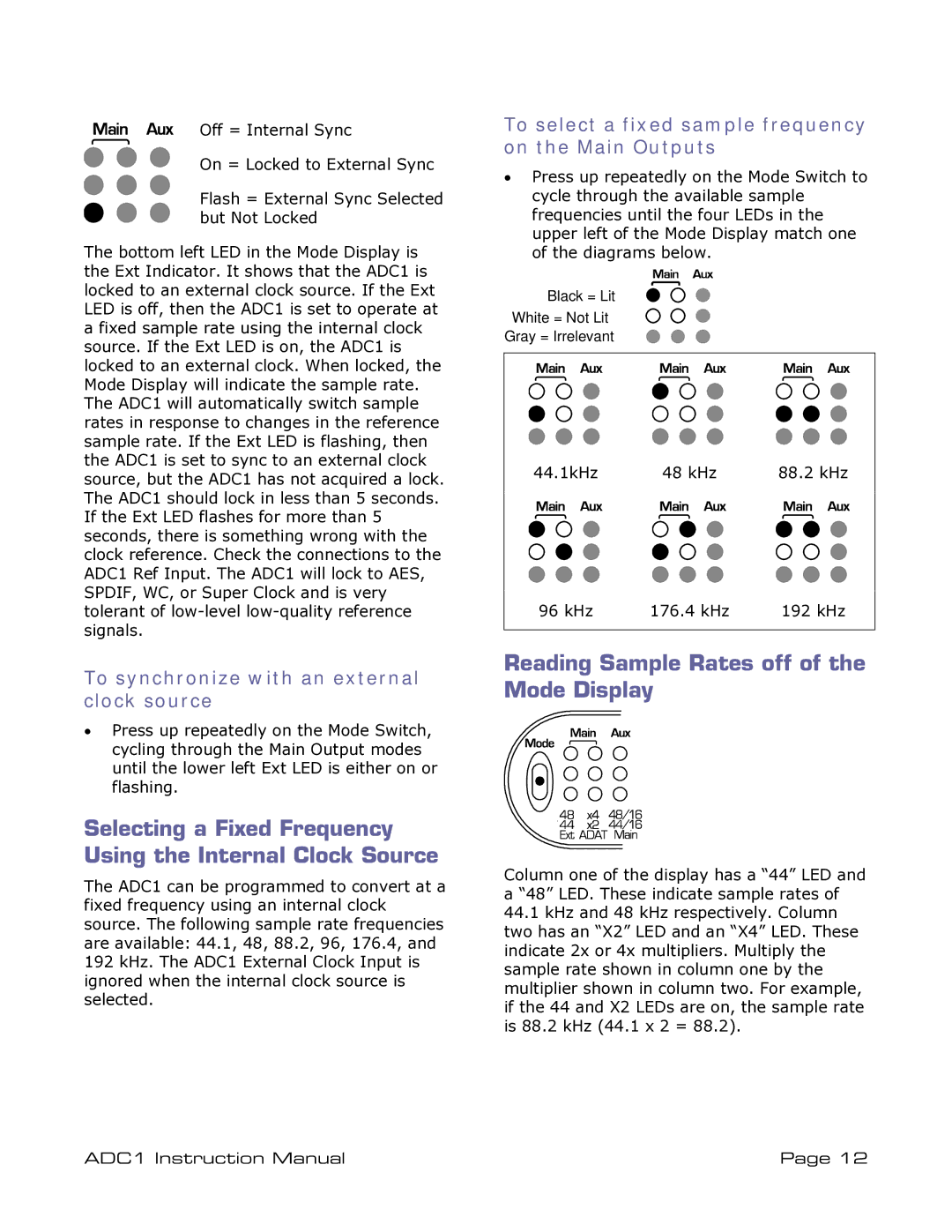
Off = Internal Sync
On = Locked to External Sync
Flash = External Sync Selected but Not Locked
The bottom left LED in the Mode Display is the Ext Indicator. It shows that the ADC1 is locked to an external clock source. If the Ext LED is off, then the ADC1 is set to operate at a fixed sample rate using the internal clock source. If the Ext LED is on, the ADC1 is locked to an external clock. When locked, the Mode Display will indicate the sample rate. The ADC1 will automatically switch sample rates in response to changes in the reference sample rate. If the Ext LED is flashing, then the ADC1 is set to sync to an external clock source, but the ADC1 has not acquired a lock. The ADC1 should lock in less than 5 seconds. If the Ext LED flashes for more than 5 seconds, there is something wrong with the clock reference. Check the connections to the ADC1 Ref Input. The ADC1 will lock to AES, SPDIF, WC, or Super Clock and is very tolerant of
To synchronize with an external clock source
•Press up repeatedly on the Mode Switch, cycling through the Main Output modes until the lower left Ext LED is either on or flashing.
Selecting a Fixed Frequency Using the Internal Clock Source
The ADC1 can be programmed to convert at a fixed frequency using an internal clock source. The following sample rate frequencies are available: 44.1, 48, 88.2, 96, 176.4, and 192 kHz. The ADC1 External Clock Input is ignored when the internal clock source is selected.
ADC1 Instruction Manual
To select a fixed sample frequency on the Main Outputs
•Press up repeatedly on the Mode Switch to cycle through the available sample frequencies until the four LEDs in the upper left of the Mode Display match one of the diagrams below.
Black = Lit
White = Not Lit
Gray = Irrelevant
44.1kHz | 48 kHz | 88.2 kHz |
96 kHz | 176.4 kHz | 192 kHz |
Reading Sample Rates off of the Mode Display
Column one of the display has a “44” LED and a “48” LED. These indicate sample rates of
44.1kHz and 48 kHz respectively. Column two has an “X2” LED and an “X4” LED. These indicate 2x or 4x multipliers. Multiply the sample rate shown in column one by the multiplier shown in column two. For example, if the 44 and X2 LEDs are on, the sample rate is 88.2 kHz (44.1 x 2 = 88.2).
Page 12
